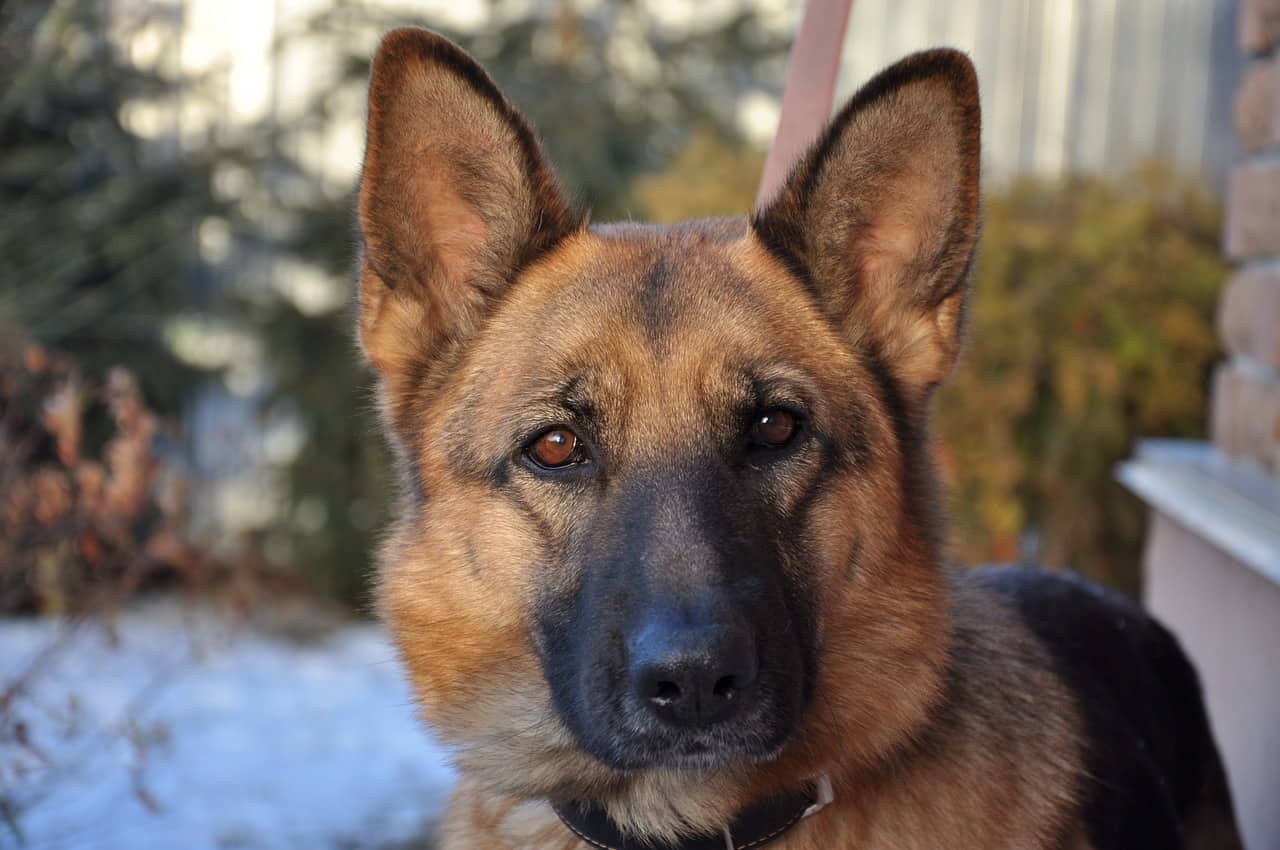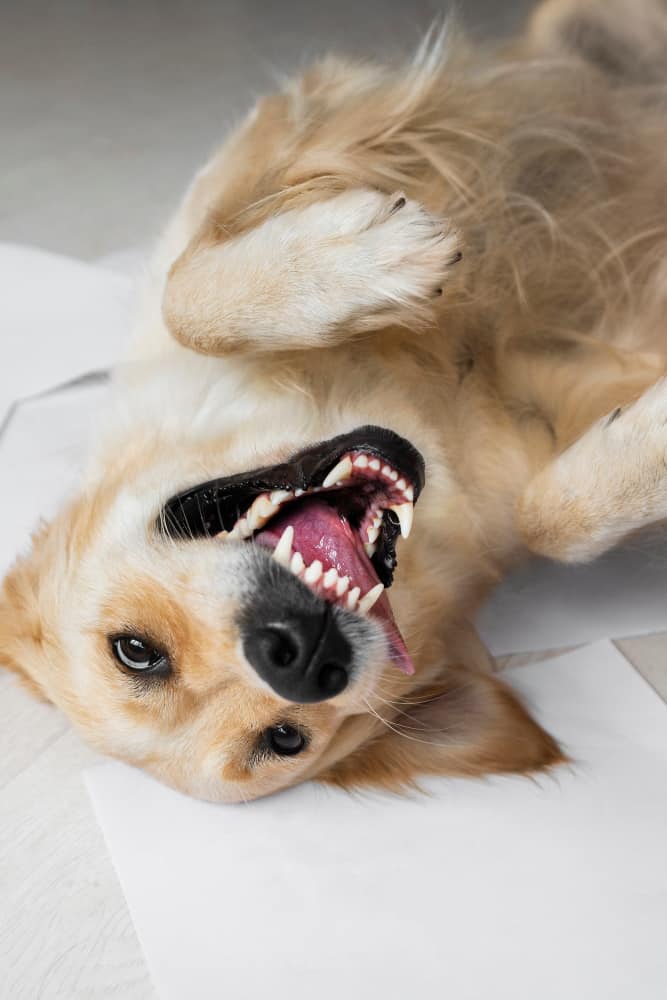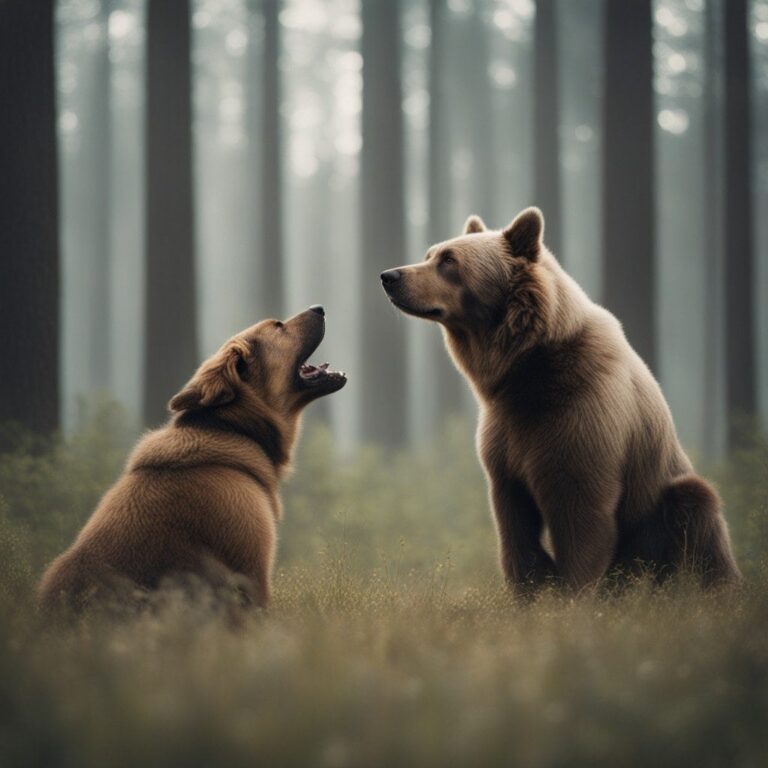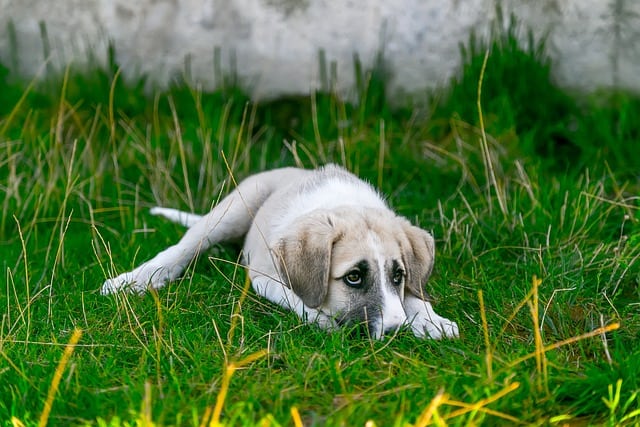Signs My Dog get Jealous of New Puppy: Unveiling the Truth

Welcoming a new puppy into your home can be an exciting and joyful experience. But what if your beloved furry friend is showing signs of jealousy? Dogs, just like humans, can experience feelings of envy when a new addition joins the family.
In this blog post, we’ll explore the Signs My Dog is Jealous of New Puppy and offer tips on managing this jealous behavior. From attention-seeking behaviors to changes in eating habits. Understanding the signs of jealousy will help you create a harmonious environment for your furry friends.
Contents
- Signs my dog is jealous of new puppy
- Splitting One of the sign of jealousy
- Aggression
- Attention-seeking behaviors:
- Changes in behavior:
- Loss of appetite:
- Increased possessiveness:
- Unwanted accidents:
- Growling:
- Withdrawal and depression:
- Stink-eye:
- Resting places:
- Extra petting:
- Changes in routine
- Decreased appetite:
- Do dogs get upset when you get a new puppy?
- How long will it take my dog to accept a new puppy?
- Final Word
Signs my dog is jealous of new puppy
Introducing a new puppy into your home can be exciting. But it was a challenging experience, especially for your current furry friend. Dogs are known to be territorial and possessive creatures. This means they may exhibit jealousy when a new puppy enters the picture. Here are some common signs that your dog might be feeling jealous:
Splitting One of the sign of jealousy
One of the common signs that your dog may be jealous of the new puppy is splitting. This refers to when your dog tries to separate you from the new puppy by getting between you or pushing the puppy away. It’s their way of trying to regain your undivided attention and affection. Keep an eye out for this behavior, as it can indicate feelings of jealousy and your need for reassurance.
Aggression

Another sign to look out for is aggression towards the new puppy. Your dog may display growling, snapping, or even biting to establish dominance and protect their territory.
This aggressive behavior is a clear sign that your dog is feeling threatened by the presence of the new puppy. And is trying to assert their position in the hierarchy.
Attention-seeking behaviors:
Jealousy often manifests through attention-seeking behaviors. Your dog may start demanding more attention from you, seeking physical contact, or pawing at you for affection.
They may also become clingy, following you around everywhere you go and showing signs of separation anxiety when you’re not with them. These behaviors try to regain the attention they feel they’ve lost to the new puppy.
Changes in behavior:
Jealousy can also cause your dog to exhibit changes in their behavior. They might become more lethargic or withdrawn, losing interest in activities they once enjoyed. Additionally, they may show signs of restlessness or become hyperactive to get your attention. These changes can result from their jealousy and a cry for help to bring back the old routine and dynamic.
Loss of appetite:
Jealousy can affect your dog’s appetite as well. They may refuse to eat or show a decrease in their food intake.
This loss of appetite can respond to the emotional turbulence your dog is experiencing due to the new puppy.
Like humans, dogs can lose their appetite when feeling stressed or anxious. It’s essential to watch their eating habits and provide a safe and calm environment where they can feel comfortable enough to eat.
Increased possessiveness:
Jealousy can trigger possessive behavior in dogs. Your dog may become protective of their toys, food bowl, or even you. They might growl, snarl, or guard these items more than before.
This possessiveness stems from their fear of losing what they consider theirs and can lead to aggression if not addressed.
It’s crucial to establish clear boundaries and reinforce positive behaviors through training and socialization.
Unwanted accidents:
Jealousy can also manifest in dogs through marking behavior or inappropriate elimination.
If your dog starts urinating or defecating inside the house, especially in areas where the new puppy spends a lot of time, it could be a sign of jealousy. This is their way of expressing their displeasure and marking their territory.
It’s important to address these accidents by reinforcing proper potty training and providing ample opportunities for your dog to relieve themselves outside.
Growling:

Jealousy can cause your dog to exhibit aggressive behaviors such as growling. When they feel threatened or insecure, they may use growling to assert dominance and protect what they perceive as theirs. It is crucial to take this behavior and address it immediately. Consult a professional dog trainer or behaviorist to develop a training plan. That focuses on teaching your dog more appropriate ways of expressing their emotions without resorting to aggression.
Withdrawal and depression:
Jealousy can also lead to changes in your dog’s emotional state. It causes them to withdraw and become depressed. They may exhibit signs of sadness. Such as decreased appetite, lethargy, and a lack of interest in activities they once enjoyed.
This withdrawal is their way of showing that they are not happy with the new addition to the family and feel left out or replaced.
Stink-eye:
Another common sign of jealousy in dogs is the infamous “stink-eye.” You may notice your dog giving intense stares or dirty looks towards the new puppy or even towards you when you give attention to the puppy.
This is their way of expressing their disapproval and trying to regain your attention. It’s important to recognize these signals as they can escalate into more problematic behaviors if addressed.
Resting places:
When dealing with a jealous dog, it’s crucial to pay attention to their resting places. Jealousy can cause your dog to become possessive over their bed or favorite spot in the house. They may guard it and growl if anyone, including the new puppy, tries to approach.
To keep the peace in the house, it’s important to set clear rules and limits around these spots to rest. Think about giving each dog its place to rest, and make sure they feel safe and at ease in their designated areas.
Extra petting:
While jealousy can bring out negative behaviors in dogs. It’s important to remember that positive reinforcement is key in addressing this issue.
One way to do this is by providing extra petting and attention to your jealous dog. Whenever they exhibit calm and non-aggressive behavior. This reinforces the idea that good behavior is rewarded and can help redirect their focus from feelings of jealousy to positive interactions with you.
Changes in routine
Jealousy can disrupt your dog’s daily routine. They may become more clingy and demand extra attention from you.
You may notice them following you around the house more than usual or pawing at you for affection. It’s important to make time for quality bonding sessions with your dog to reduce their feelings of jealousy and insecurity.
Decreased appetite:
Jealousy can also affect your dog’s eating habits. They may lose interest in their food or show a decreased appetite due to their heightened emotions.
If you notice that your dog is not eating as usual. It’s essential to consult with a veterinarian to rule out any underlying health issues. But, if it is determined that jealousy is the cause, try to create a calm and peaceful environment during mealtimes.
Avoid any situations or interactions that may trigger their jealousy and offer plenty of praise and reward when they do eat. Additionally, introducing interactive feeding toys or puzzles can help distract them from their jealous feelings and stimulate their appetite.
Do dogs get upset when you get a new puppy?

Introducing a new puppy into your home can indeed cause your dog to feel upset and jealous. Like humans, dogs experience jealousy in various emotions, and jealousy arises in these situations.
Your dog may exhibit signs of distress, such as acting out, being less affectionate, or even displaying aggressive behavior towards the new puppy.
To help ease this transition for your dog, it’s important to provide them with reassurance and extra attention. Spend dedicated one-on-one time with your dog, engaging in activities they enjoy. This will show them that they are still loved and valued despite the presence of the new puppy. It’s also crucial to establish clear boundaries and rules for both dogs, ensuring they have their own space and resources.
Introduce the new puppy to your dog, allowing them to sniff and interact under controlled circumstances.
Supervise their interactions, stepping in if any signs of aggression or discomfort arise. Offer treats and rewards for positive behavior, reinforcing that good things happen when the puppy is around.
How long will it take my dog to accept a new puppy?
The length of time it takes for your dog to accept a new puppy fully can vary. Each dog is unique and will adjust at their own pace. It may take a few weeks to several months for your dog to feel comfortable and accepting of the new addition to the family. Give your dog some time to accept a new dog puppy and help your dog with your love and attention to adjust.
Patience and consistency are key during this process. Continue providing equal attention and affection to both dogs. Reinforcing positive behavior and creating positive associations with the puppy’s presence. Allow them to interact in controlled settings and gradually increase their time together.
Final Word
it’s important to watch for signs my dog is jealous of new puppy. These signs can include changes in behavior, like acting out or seeking extra attention. To help your dog feel more secure, show your dog love and attention, let your dog and the new puppy interact positively, and be patient with the adjustment. By recognizing the signs your dog is jealous of the new puppy and taking steps to address them, you can create a harmonious environment where your dog and the new addition can coexist happily.
Source:-
https://www.aspca.org/pet-care/dog-care/common-dog-behavior-issues/aggression






